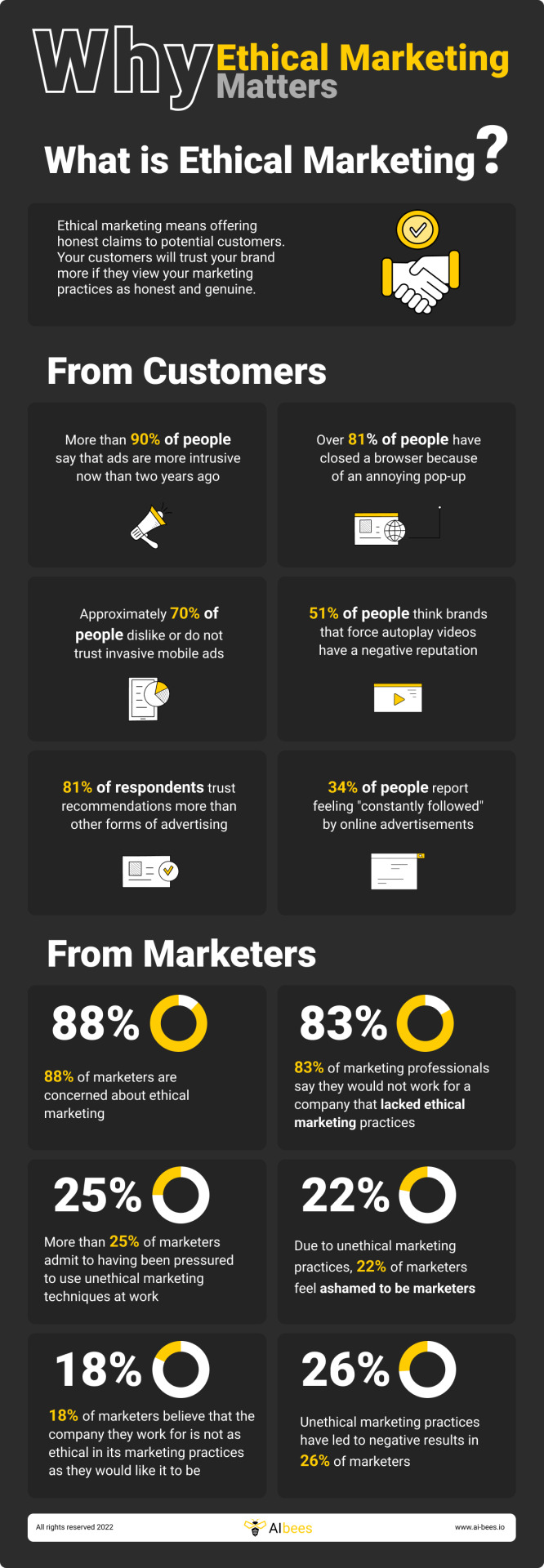#businessethics
Text
Online Reputation Management
We've revamped the Recover Reputation website.
Now it's easy to navigate through our reputation services, learn about custom solutions for clients, review our ethical approach, and see transparent pricing. We're committed to providing ROI-driven solutions to help brands and individuals reclaim and build a stellar reputation.

#RecoverReputation#WebsiteRevamp#ReputationManagement#OnlineReputation#ROI#EthicalApproach#TransparentPricing#ReputationServices#ReputationRepair#ReputationBuilding#ClientFocused#DigitalTransformation#BrandManagement#OnlinePresence#ReputationStrategy#BusinessEthics#CustomerService#WebsiteLaunch#BusinessGrowth#ProfessionalServices#BrandReputation
4 notes
·
View notes
Photo

Today Ethical Marketing is a common practice for building trust with your customers. Here's why it matters!👆
2 notes
·
View notes
Text
Unlock your potential with StudySection's Soft Skills Foundation Diploma Certificate! 🌟 Enhance your career prospects with certifications in:
1️⃣ Communication Skills (Foundation)
2️⃣ Personality Development (Foundation)
3️⃣ Presentation Skills (Foundation)
4️⃣ Leadership Skills (Foundation)
5️⃣ Business Ethics (Foundation)
It's as simple as that: Pay a nominal fee, receive your Soft Skills Foundation Diploma Certificate, and get individual subject certificates absolutely FREE!
#StudySection#OnlineCertification#OnlineExam#SoftSkills#DiplomaCertificate#CareerDevelopment#ProfessionalGrowth#CommunicationSkills#PersonalityDevelopment#PresentationSkills#LeadershipSkills#BusinessEthics
0 notes
Text
Discover 1500+ Business Ethics Posts on Brands.live

Explore a wide variety of Business Ethics Posters and Flyers on Brands.live with over options to choose from.
Create stunning Business Ethics Banners, Business Logos and Social Media Posts for your next project using beautiful and Royalty-Free Photos related to business Ethics.
Start enhancing your Business Ethics initiatives today with Brands.live.
Utilise our Poster maker App, related to Canva, to create stunning templates effortlessly.
✓ Free for Commercial Use
✓ High-Quality Images.
#BusinessEthics#EthicalExcellence#PosterMakerApp#FreeTemplates#BrandsLivePosters#DownloadNow#BrandLiveMagic#SocialMediaMarketing#BusinessGrowth#branding#marketing#Brandsdotlive#EthicalBusiness
0 notes
Text
How Can Legitimate Interest Assessments Help Businesses Navigate Data Privacy Regulations Effectively?
In data protection and privacy regulations, one concept that often comes into play is “legitimate interest.”
But what exactly does this term entail, and how can businesses leverage it effectively while ensuring compliance with regulations like the GDPR? In this post, we’ll delve into the intricacies of legitimate interest and explore how conducting a thorough assessment can benefit…

View On WordPress
#Accountability#BusinessEthics#compliance#ConsentManagement#CustomerTrust#dataprivacy#DataProcessing#dataprotection#DataRegulations#datasecurity#EthicalDataProcessing#gdpr#LegalCompliance#LegitimateInterest#LIA#PersonalDataProtection#privacycompliance#RegulatoryCompliance#Transparency#TrustworthyDataHandling
0 notes
Text
Guide to Running a Business
Introduction:
In today’s competitive business landscape, success is no longer solely measured by financial gains or market dominance. More and more, individuals are recognizing the importance of running a business with integrity, ethics, and a sense of responsibility towards stakeholders and society as a whole. This blog aims to explore the principles and practices that define a true gentleman…

View On WordPress
#BusinessEthics#BusinessWithIntegrity#EthicalDecisionMaking#EthicalEntrepreneurship#EthicalLeadership#FairCompetition#GentlemanInBusiness#GivingBackToSociety#IntegrityMatters#PhilanthropyMatters#RespectfulWorkplace#ResponsibleCorporateCitizenRemember#SocialResponsibility#SustainableBusiness#TransparentBusiness
0 notes
Text
The Ethics of Business: How Spiritual Beliefs Influence Decision-Making

In the intricate tapestry of business ethics, one often overlooked thread is the influence of spirituality on decision-making. Amidst the hustle and bustle of boardrooms and balance sheets, there exists a profound interplay between individual spiritual beliefs and the ethical choices made in the realm of commerce. This article seeks to explore this symbiotic relationship, unravelling the ways in which spirituality molds decision-making processes in the business world.
At its core, spirituality embodies a set of deeply held beliefs and values that guide an individual's understanding of the world and their place within it. While religion can be a part of spirituality, it transcends mere adherence to dogma, encompassing a broader sense of connection, purpose, and meaning. In the context of business ethics, spirituality serves as a compass, navigating the turbulent waters of moral ambiguity and guiding individuals towards decisions that align with their higher principles.
One of the fundamental ways in which spirituality influences decision-making in business is through the cultivation of empathy and compassion. Spiritually grounded individuals often prioritize the well-being of others and the greater good above narrow self-interest. This altruistic perspective informs their business decisions, leading them to consider the impact on stakeholders beyond just profitability. Whether it's ensuring fair treatment of employees, practicing environmental sustainability, or contributing to social causes, spiritual beliefs compel individuals to view business as a vehicle for positive change in the world.
Moreover, spirituality fosters a sense of interconnectedness and interdependence, recognizing the web of relationships that bind individuals, organizations, and society as a whole. This holistic perspective encourages collaborative and inclusive decision-making processes, where diverse voices are heard, and consensus is sought. In the boardroom, leaders grounded in spirituality are more likely to prioritize transparency, integrity, and trust, fostering environments conducive to ethical conduct and long-term success.
Furthermore, spirituality provides a framework for grappling with ethical dilemmas that inevitably arise in the course of business. Drawing upon principles of wisdom, discernment, and moral courage, spiritually informed individuals navigate complex moral terrain with clarity and integrity. They are guided not only by legal statutes and profit margins but also by a deeper sense of right and wrong rooted in their spiritual beliefs. This ethical compass serves as a beacon, illuminating the path forward even in the face of adversity or temptation.
It's essential to recognize that spirituality in business is not confined to individual belief systems but can also manifest in organizational cultures and practices. Companies that embrace spirituality as a core value often prioritize principles such as authenticity, humility, and service. These organizations cultivate a sense of purpose beyond mere profit maximization, inspiring employees to contribute their talents towards a shared vision of collective flourishing. In such environments, business becomes more than a transactional exchange; it becomes a sacred endeavour, imbued with meaning and significance.
Nevertheless, the integration of spirituality into business ethics is not without its challenges. In a world driven by materialism and short-term gains, spiritual principles may clash with prevailing norms and practices. Skeptics may dismiss spirituality as irrelevant or incompatible with the cutthroat realities of the marketplace. However, it is precisely in these moments of tension and resistance that the transformative power of spirituality shines brightest, challenging us to envision a more ethical and sustainable approach to business.
In conclusion, the ethics of business are deeply intertwined with spirituality, shaping decision-making processes and organizational cultures in profound ways. By acknowledging the influence of spiritual beliefs on ethical conduct, we can cultivate environments that prioritize values such as empathy, interconnectedness, and integrity. In doing so, we not only foster greater well-being and flourishing within organizations but also contribute to the creation of a more just and compassionate world.
As we navigate the complexities of the modern business landscape, let us heed the wisdom of spirituality, recognizing that true success is not measured solely in financial terms but in the richness of our relationships, the integrity of our actions, and the legacy of our contributions to society. In embracing the ethics of business guided by spiritual principles, we embark on a journey towards greater meaning, purpose, and fulfillment for ourselves and future generations.
#SpiritualBusiness#EthicalLeadership#PurposeDriven#BusinessEthics#CompassionateCommerce#SustainableSuccess#ConsciousCapitalism#EmpatheticLeadership#EthicalDecisionMaking#HolisticBusiness#ValuesDriven#SociallyResponsible#MindfulLeadership#PurposefulProfit#EthicsMatter
0 notes
Text

🌍 Drive Social Responsibility, Transform Global Growth with ISO 26000 Certification! 🌱 B2BCert is committed to empowering businesses to make a positive impact on society. Our ISO 26000 certification ensures ethical practices, sustainability, and community engagement. Join us in leading the way towards a more socially responsible and sustainable future! 🤝
#🌿#ISO26000#SocialResponsibility#B2BCertEthics#SustainableGrowth#EthicalPractices#CommunityEngagement#ISOStandards#CertifyWithConfidence#GlobalImpact#CorporateSocialResponsibility#BusinessEthics#SustainabilityJourney#B2BSocialResponsibility#TransformGrowth#SociallyResponsibleBusiness
0 notes
Text
#CorporateResponsibility#SustainableBusiness#EnvironmentalImpact#SocialInequality#EconomicJustice#BusinessEthics#ClimateChange#WorkerRights#EconomicSustainability#CorporateAccountability#HumanRights#EnvironmentalJustice#SocialImpact#EthicalBusiness#Sustainability#steinberg#austin texas
2 notes
·
View notes
Text
Navigating the Nexus: Corporate Governance and Firm Performance 📊✨
Hey Tumblr community! Today, let's explore the fascinating interplay between corporate governance and firm performance. 🌐💼
🔍 Understanding Corporate Governance: At its core, corporate governance refers to the system of rules, practices, and processes by which companies are directed and controlled. It's like the invisible hand guiding the ship of a company towards its goals, ensuring accountability, transparency, and fairness along the way. 🤝🏛️
💼 Driving Forces of Firm Performance: Firm performance encompasses various aspects, including financial metrics, market share, innovation, and sustainability. Effective corporate governance plays a crucial role in shaping these factors, influencing how efficiently and ethically a company operates.
📈 The Impact on Financial Performance: Research suggests a strong correlation between robust corporate governance practices and financial performance. Companies with sound governance structures tend to attract more investors, enjoy lower financing costs, and exhibit greater resilience in turbulent market conditions. 💰💡
🌱 Fostering Sustainable Growth: Beyond financial gains, good corporate governance fosters sustainable growth by promoting long-term value creation and responsible business practices. It encourages companies to prioritize stakeholder interests, uphold ethical standards, and mitigate risks effectively.
🔒 Mitigating Risks and Enhancing Trust: A well-governed company is better equipped to identify and mitigate risks, whether they stem from internal operations, regulatory changes, or external market dynamics. This proactive approach not only safeguards the company's interests but also enhances stakeholders' trust and confidence in its leadership.
👥 Empowering Stakeholder Engagement: Corporate governance isn't just about boards and executives; it's about fostering a culture of accountability and transparency across all levels of the organization. By empowering stakeholder engagement and participation, companies can harness diverse perspectives to drive innovation and achieve collective success. 🌟🤝
In conclusion, the impact of corporate governance on firm performance is undeniable. It's not just a regulatory box to tick; it's a strategic imperative that shapes the destiny of companies and the communities they serve. Let's continue championing principles of good governance and ethical leadership for a brighter future! 💼🌱
#BusinessEthics#EthicalLeadership#FirmPerformance#CorporateGovernance#finance#payment gateway#thefinrate#fintech#financialinsights
0 notes
Text
Delaware Judge Overturns Elon Musk’s $55.8 Billion Tesla Pay Package

Chancellor McCormick Deems Pay Package “Unfathomable” and Unfair to Shareholders
In a groundbreaking ruling this week, Chancellor Kathleen St. J. McCormick of the Delaware Court of Chancery declared the $55.8 billion pay package awarded to Tesla CEO Elon Musk null and void, labeling it an “unfathomable sum” that unfairly favored Musk over shareholders. The decision raises questions about corporate governance and the influence of high-profile CEOs on compensation negotiations.
Background of the Lawsuit: Shareholder Challenges Elon Musk’s Ties and Negotiation Power
The legal battle unfolded after a shareholder filed a lawsuit alleging that Musk’s close ties with the Tesla board gave him an undue advantage in negotiating his compensation. The plaintiff argued that Musk’s significant control over the board’s decision-making process compromised the fairness of the deal.
Chancellor McCormick, in a 200-page ruling, pointed out that Tesla’s board failed to demonstrate the fairness of the colossal compensation plan – the largest in the history of public markets. Musk, holding multiple influential positions within the company, was deemed to have exerted a dominant influence on the approval of his own pay package, creating a conflict of interest.
Negotiations, Appeals, or Relocation?
Analysts suggest that Tesla’s board faces a challenging situation, commonly described as a “tornado situation” by Wedbush Securities analyst Daniel Ives. Options include renegotiating a new pay package acceptable to both shareholders and Musk, appealing the Delaware Court’s decision, or considering a change in Tesla’s place of incorporation.
Elon Musk, responding to the ruling on the social media platform X, suggested that Tesla might incorporate in a more business-friendly state, such as Texas. Musk polled his followers on the platform, seeking their opinion on whether Tesla should incorporate in Texas or Nevada, where it already has corporate offices and a factory.
Criticism and Tesla Stock Ownership: Musk’s Violation of Corporate Procedures
Legal experts, including Case Western Reserve University law professor Anat Alon-Beck, criticized Musk for disregarding the fundamentals of corporate fairness. Alon-Beck argued that Musk failed to adhere to Delaware corporate law principles, which could have prevented the legal entanglement.
Financial Fallout and Public Outcry: Musk’s Stock Ownership and Pay Disparities
Even without the contested pay package, Musk remains a major Tesla shareholder, owning approximately 411 million shares worth about $78 billion. The Delaware Court’s decision drew attention to the vast disparity between executive pay and that of rank-and-file employees, with Musk’s pay package being deemed “absurd” and criticized for setting a troubling precedent.
The Delaware court’s decision to overturn Elon Musk’s record-breaking pay package prompts a reexamination of corporate governance practices and the role of influential CEOs in determining their own compensation. As Tesla navigates the aftermath, the outcome may have far-reaching implications for executive compensation negotiations across the business landscape.
Curious to learn more? Explore our articles on Enterprise Wired
#CorporateGovernance#ExecutiveCompensation#Tesla#ElonMusk#DelawareCourt#ShareholderRights#BusinessEthics#LegalNews#TeslaBoard
0 notes
Text
Navigating the Terrain: The Reality of Purchasing Google Maps Reviews for Your Business 🗺️🌐

In the vast landscape of online reviews, Google Maps stands out as a critical platform for businesses to showcase their reputation. As the digital realm evolves, questions about the legitimacy of acquiring Google Maps reviews emerge. This article aims to explore the possibility of purchasing Google Maps reviews, delve into alternative methods, and shed light on the pros and cons of such practices. Additionally, we'll introduce you to medoeb.com, a platform that not only sells digital products but also offers a unique service – boosting your business's Google Maps reviews at competitive prices.
Is It Possible to Purchase Google Maps Reviews for My Business?
The internet is replete with services that claim to provide Google Maps reviews for businesses, often marketed as a quick solution to enhance reputation. However, the ethical implications and consequences of such actions raise concerns.

Exploring the Legitimacy of Review Purchase
Alternative 1: Legitimate Services for Buying Google Maps Reviews
Businesses are often tempted by services that promise to deliver authentic-looking reviews.
It's crucial to distinguish between legitimate services and those that engage in fraudulent practices.
Alternative 2: Recommending a Reliable Platform for Purchasing Google Maps Reviews
Platforms claiming to offer genuine reviews may exist, but scrutiny is necessary to avoid falling into potential ethical and legal traps.
A reliable platform should prioritize authenticity and adhere to ethical business practices.
Alternative 3: Pros and Cons of Buying Google Maps Reviews
Understanding the advantages and disadvantages of purchasing reviews is essential for making an informed decision.
Exploring the common practices and potential consequences can help businesses navigate the complexities of online reputation management.
The Pros and Cons of Buying Google Maps Reviews
Pros:
Boosted Visibility:
Purchasing reviews may provide a quick boost in visibility on Google Maps, potentially attracting more customers.
Competitive Edge:
Positive reviews can give your business a competitive edge, especially in industries where online reputation heavily influences consumer choices.
Quick Reputation Enhancement:
For new businesses or those looking for a rapid improvement in their online image, purchased reviews might offer a shortcut.

Cons:
Ethical Concerns:
Purchasing reviews raises ethical questions and may violate the terms of service of various review platforms, leading to potential legal repercussions.
Risk of Detection:
Review platforms employ algorithms and human moderation to detect fake reviews. If caught, the consequences can be severe, including the removal of all reviews or even account suspension.
Loss of Trust:
Once customers discover that a business has engaged in the purchase of reviews, trust is eroded, potentially leading to long-term damage to the brand's reputation.
Introducing medoeb.com: Elevate Your Google Maps Reputation Ethically
Now, as an alternative to questionable practices, consider a solution that not only aligns with ethical standards but also offers a unique service to boost your Google Maps reviews.
Medoeb.com – Your Reputation Enhancement Partner
Medoeb.com, a trusted platform for digital products, introduces a service tailored for businesses seeking to enhance their online reputation on Google Maps. With a commitment to ethical practices, medoeb.com offers a specialized service that:
Increases Google Maps Reviews:
Medoeb.com provides a genuine and effective solution to boost your business's Google Maps reviews.
Competitive Prices:
Enjoy competitive prices that ensure you get the best value for your investment.
Ethical Approach:
Medoeb.com focuses on ethical practices, steering clear of fraudulent activities that could harm your business in the long run.

Exclusive Offer: Transform Your Google Maps Presence!
Visit medoeb.com today to explore the exclusive offer on enhancing your Google Maps reputation. For a limited time, medoeb.com is providing a specialized service to increase your Google Maps reviews, ensuring a positive and authentic representation of your business.
In conclusion, while the temptation to purchase Google Maps reviews may be strong, businesses must weigh the risks and consequences. Medoeb.com offers a reputable and ethical solution to boost your Google Maps reputation, helping your business thrive in the digital landscape. Choose the path of authenticity and integrity, and let medoeb.com be your partner in enhancing your online presence. 🌐✨
#GoogleMapsReviews#OnlineReputation#BusinessIntegrity#EthicalMarketing#DigitalTrust#ReviewManagement#GoogleMapsBoost#MedoebOffer#BusinessEthics#DigitalMarketing#ReputationManagement#TrustworthyReviews#MedoebSpecial#BoostYourBusiness#OnlineVisibility#AuthenticReviews#DigitalReputation#GoogleMapsSuccess#OnlinePresence#CustomerTrust#MedoebSolution#ReviewEnhancement#BusinessSuccess#PositiveReputation#GoogleMapsStrategy#BrandIntegrity#OnlineTrust#MedoebExclusive#DigitalEthics
0 notes
Text
Explore 2500+ Business Ethics Stock Images & Flyers on Brands.live

Find a wide variety of Business Ethics Posters and Templates on Brands.live, with over 5500 options to choose from.
Create stunning Banners, Business logos for your next project using beautiful and royalty-free Photos and Social Media Posts related to Business Ethics.
Utilise our Poster maker App, related to Canva, to create stunning templates effortlessly.
✓ Free for Commercial Use
✓ High-Quality Images.
#BusinessEthics#EthicalExcellence#PosterMakerApp#FreeTemplates#BrandsLivePosters#DownloadNow#BrandLiveMagic#SocialMediaMarketing#BusinessGrowth#branding#marketing#Brandsdotlive#EthicalBusiness
0 notes
Text
Maximizing Fitness & Wellness: Practical Fitness Strategies
youtube
#bapl#liveinthelab#businessathlete#AthleteTransitions#keithbilous#officialbapl#EntrepreneurshipInsights#StartupChallenges#BusinessLeadership#InnovationAndGrowth#EntrepreneurialMindset#LiveInTheLab#Episode50Reflections#SuccessStrategies#BusinessEthics#BuildingABusiness#Youtube
0 notes
Text
The Role of Payroll in Corporate Social Responsibility
Discover how payroll practices go beyond numbers, shaping a socially responsible workplace. Uncover the role of payroll in fostering transparency, fairness, and positive impact.
#EthicalPayroll#PayrollTransparency#FairCompensation#EmployeeWellBeing#CorporateEthics#PayrollInnovation#WorkplaceFairness#SustainableHR#CSRLeadership#PayrollImpact#BusinessEthics#EmployeeSatisfaction#TransparencyInBusiness#SociallyResponsible#CorporateValues#PayrollIntegrity#CSRInitiatives#SustainableWorkplace#FairWages#PayrollInclusion#SocialImpact#WorkplaceEquity#EthicalBusiness#PayrollEmpowerment#CSRStrategies#PositiveWorkplace#DiversityInPayroll#ResponsibleManagement#CSRGoals#InclusivePayroll
0 notes
Text
Is Sustainability a Competitive Advantage: Exploring Eco-Friendly Practices in Business?

In today's rapidly changing business landscape, sustainability has become more than just a buzzword; it's a powerful competitive advantage. Eco-friendly practices in business are not just about being environmentally responsible, but also about reaping substantial benefits that can give your company a significant edge in the market. This blog will delve deep into the world of sustainability, shedding light on its importance in modern business and providing valuable tips on implementing eco-friendly practices to gain a competitive edge.
The business world is evolving, and consumers are increasingly demanding eco-conscious products and services. Sustainable practices are no longer an optional choice but a necessity. This shift in consumer preferences, combined with growing environmental concerns, has made sustainability an essential aspect of business strategy.
So, let's explore how embracing eco-friendly practices can drive your business forward in today's competitive market.
The Importance of Sustainability in Business
Sustainability is no longer a distant goal but a fundamental element of modern business strategy. Embracing eco-friendly practices can lead to numerous benefits, not only for the environment but also for your bottom line. Here are some compelling reasons why sustainability should be a priority for your business:
Enhanced Reputation and Brand Image:
Sustainability initiatives can boost your company's reputation and brand image. Consumers are more likely to trust and support businesses that prioritize environmental responsibility. A strong sustainability reputation can help you stand out from competitors and attract a loyal customer base.
Cost Savings:
Implementing eco-friendly practices often leads to reduced operational costs. Energy-efficient technologies, waste reduction, and sustainable supply chain management can result in significant savings over time. These cost savings can improve your company's profitability and competitiveness.
Regulatory Compliance:
Governments worldwide are implementing stricter environmental regulations. By proactively adopting eco-friendly practices, you can ensure compliance with these regulations, avoiding costly fines and legal issues that non-compliant businesses may face.
Access to New Markets:
Sustainable practices can open doors to new markets and customer segments. Many consumers are actively seeking eco-friendly products and services. By catering to this demand, your business can tap into previously untapped markets and diversify its customer base.
Employee Engagement and Productivity:
Sustainability initiatives can also boost employee morale and productivity. Employees often take pride in working for socially responsible companies. By engaging your workforce in sustainability efforts, you can create a more motivated and committed team.
Risk Mitigation:
Climate change and environmental issues pose risks to businesses. By adopting eco-friendly practices and reducing your environmental footprint, you can mitigate these risks and protect your long-term viability.
Now that we have highlighted the importance of sustainability, let's explore some practical tips for implementing eco-friendly practices in your business.
Tips for Implementing Eco-Friendly Practices in Business
Conduct a Sustainability Audit:
Begin by assessing your current environmental impact. Identify areas where your business can reduce its carbon footprint, such as energy consumption, waste generation, and water usage. A sustainability audit will provide a baseline for improvement.
Set Clear Sustainability Goals:
Define specific and measurable sustainability goals for your business. These goals should align with your company's values and long-term vision. Whether it's reducing greenhouse gas emissions, increasing recycling rates, or sourcing sustainable materials, having clear objectives will guide your efforts.
Invest in Energy Efficiency:
Energy consumption is a significant contributor to environmental impact. Invest in energy-efficient technologies and practices, such as LED lighting, smart thermostats, and energy-efficient appliances. Implementing these changes can lead to substantial energy savings over time.
Embrace Sustainable Supply Chain Management:
Evaluate your supply chain for opportunities to source materials and products from eco-friendly suppliers. Consider factors like transportation emissions, ethical labor practices, and sustainable sourcing. Collaborate with suppliers committed to environmental responsibility.
Reduce, Reuse, Recycle:
Implement waste reduction strategies within your organization. Encourage employees to reduce paper usage, recycle materials, and reuse office supplies whenever possible. Reducing waste not only benefits the environment but also lowers operational costs.
Educate and Engage Employees:
Create a culture of sustainability within your company by educating and engaging employees. Provide training on eco-friendly practices and involve employees in sustainability initiatives. Encourage their ideas and contributions to make sustainability a collective effort.
Explore Green Technology:
Consider adopting green technologies that align with your business operations. For example, electric vehicles for your company fleet, solar panels for energy generation, or green building materials for construction projects. These investments can pay off in the long run while reducing your environmental impact.
Monitor and Report Progress:
Regularly track and report your sustainability progress to stakeholders, including employees, customers, and investors. Transparency about your eco-friendly practices can enhance your company's reputation and hold you accountable for achieving your sustainability goals.
Engage with Sustainability Certifications:
Seek certifications such as ISO 14001 (Environmental Management System) or B Corp certification to demonstrate your commitment to sustainability. These certifications provide third-party validation of your eco-friendly practices and can help attract environmentally conscious customers.
Collaborate and Share Best Practices:
Join industry associations and collaborate with other businesses to share best practices and innovative ideas for sustainability. Learning from others and staying updated on industry trends can help you stay competitive in the eco-friendly market.
Incorporating these eco-friendly practices into your business operations can lead to long-term benefits and give you a competitive edge in today's market.
Explore How EconStra Helps in Implementing Eco-Friendly Practices in Business
In a world where businesses constantly search for the missing pieces of the puzzle, there is a growing realization that sustainability is the key to unlocking a competitive advantage. Let me take you on a journey to explore how eco-friendly practices are transforming the landscape of business.
Picture this: You wake up every day, not just with the knowledge that your business is thriving, but also that it's making a positive impact on the environment. This dream is not far from reality, and it's happening for forward-thinking companies embracing sustainability.
Meet Sarah, the owner of a small clothing brand. She once struggled to find her place in the fiercely competitive fashion industry. Then, she made the switch to eco-friendly materials and ethical production practices. Today, Sarah proudly says, "Our customers appreciate our commitment to sustainability, and it sets us apart from the rest." Her business not only survived but found a unique edge in the market.
Another entrepreneur, Alex, had a similar story. His restaurant was struggling until he adopted sustainable sourcing practices. "Not only do we attract eco-conscious customers, but our reduced waste also means cost savings," Alex shares. Sustainability not only revived his business but made it more profitable.
So, what exactly is this transformative force that is helping businesses like Sarah's and Alex's flourish? It's the adoption of eco-friendly practices, a commitment to sustainability, and a realization that being environmentally conscious is not just the right thing to do but also a strategic advantage.
Embracing sustainability means reducing carbon footprints, minimizing waste, and utilizing renewable resources. It's not just about being green; it's about building a resilient, future-proof business.
Imagine having a business where every product is made from recycled or sustainable materials, and every process is designed to minimize environmental impact. From supply chain optimization to waste reduction strategies, eco-friendly practices are a comprehensive approach to sustainability.
And here's the exciting part: Many consumers are actively seeking out eco-conscious businesses. They want to support brands that align with their values, and sustainability has become a key purchasing factor. By embracing eco-friendly practices, you not only differentiate your business but also tap into a growing market of environmentally conscious consumers.
But sustainability isn't just about appealing to customers; it's about securing your business's future in a world increasingly focused on environmental responsibility. Regulations and consumer expectations are evolving, and businesses that fail to adapt may find themselves left behind.
So, what's stopping you from making sustainability your competitive advantage? It's time to take that first step towards a more environmentally conscious and successful business. Embrace eco-friendly practices, reduce your environmental footprint, and position your business for long-term success.
Remember, the missing puzzle piece for your business might just be sustainability. Join the ranks of businesses that are not only thriving but also making a positive impact on our planet. Let's embark on this journey together towards a brighter, more sustainable future for your business.
In an era where environmental consciousness is rapidly becoming integral to corporate responsibility, the question arises: Is sustainability a competitive advantage in the business world? As companies seek to align their practices with eco-friendly initiatives, the answer becomes increasingly clear. Embracing sustainable business practices not only contributes to a healthier planet but also positions companies as forward-thinking and socially responsible entities. Enter Econstra, one of the business consultants in India is committed to guiding enterprises towards sustainable success. With a comprehensive approach to integrating eco-friendly practices into business strategies, Econstra empowers organizations to thrive in a landscape where sustainability is more than just a buzzword—it's a key differentiator. Discover how Econstra can help your business gain a competitive edge by navigating the intricate intersection of profitability and environmental responsibility. Embrace the future of business with Econstra, where sustainability isn't just a choice; it's a strategic advantage
The Bottom Line
Sustainability is indeed a competitive advantage in today's business landscape. Eco-friendly practices in business go beyond just environmental responsibility; they are essential for building a strong brand, reducing costs, and accessing new markets. By prioritizing sustainability, your company can enhance its reputation, achieve cost savings, and mitigate risks associated with environmental challenges.
Implementing eco-friendly practices in your business requires commitment, planning, and collaboration. Conducting a sustainability audit, setting clear goals, and investing in energy efficiency are excellent starting points. Engaging employees, exploring green technology, and reporting progress are key steps in your sustainability journey.
Remember that sustainability is not a one-time effort but an ongoing commitment to making a positive impact on the environment while reaping the rewards of increased competitiveness and profitability. By embracing sustainability, your business can thrive in a world where eco-consciousness is no longer a choice but a necessity.
#SustainableBusiness#EcoFriendlyPractices#CorporateSustainability#GreenBusiness#CompetitiveAdvantage#SustainableSuccess#EnvironmentallyFriendly#BusinessEthics#GreenInnovation#SustainabilityMatters#CSR (Corporate Social Responsibility)#GreenEconomy#ClimateAction#EcoSmartBusiness#SustainableLeadership#EthicalBusiness#GreenTech#SustainableFuture#BusinessImpact#EcoFriendlyBiz#startup consultants#business consulting
0 notes